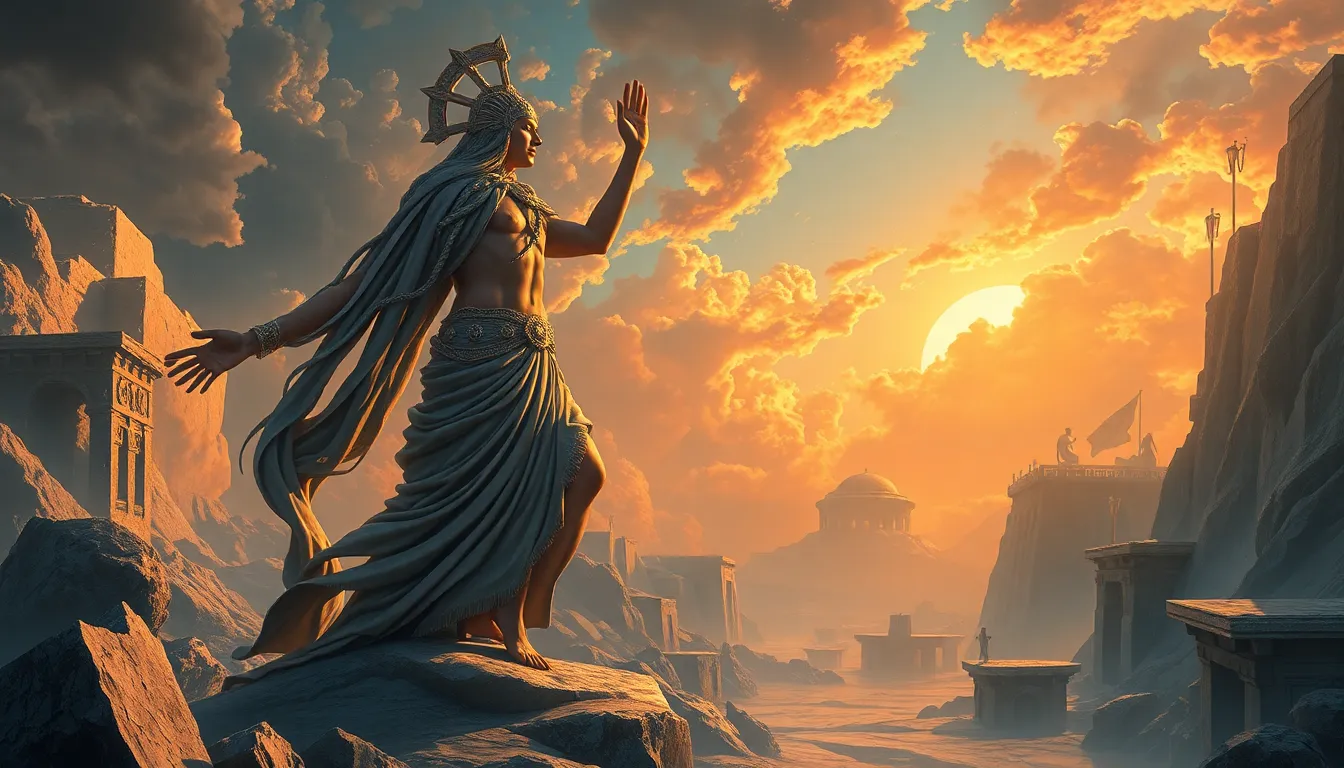The Role of Gaia in the Myths of the Trojan War
I. Introduction
The Trojan War stands as one of the most significant and enduring tales in Greek mythology, encapsulating themes of heroism, betrayal, love, and the capricious nature of the gods. This epic conflict between the city of Troy and the Achaeans is not just a story of human strife but also deeply intertwined with the divine. Among the myriad of deities that influence the events of the war, Gaia, the primordial Earth Mother, possesses a unique and often overlooked role.
This article aims to explore Gaia’s influence, representation, and significance within the myths surrounding the Trojan War. By examining her characteristics as a deity and her interactions with both gods and mortals, we can better understand her multifaceted presence in these ancient narratives.
II. Understanding Gaia: The Earth Mother
Gaia, often referred to as the Earth Mother, is one of the primordial deities in Greek mythology, representing the very foundation of the earth and life itself. She is considered the ancestral mother of all life, from the mountains and seas to the creatures that inhabit the land.
Gaia’s significance in mythology is profound. She embodies fertility, nurturing, and the life-giving aspects of the earth. Her characteristics include:
- Motherly nurturing and protection of life
- Embodiment of nature and its cycles
- Representation of the earth’s power and wrath
Her connection to fertility and nature is central to her identity, making her a vital figure in the context of war, where the earth often bears the brunt of conflict.
III. Gaia’s Influence on the War’s Origins
The Trojan War’s origins are steeped in prophecies, divine will, and the intricate relationships between gods and mortals. One significant prophecy involves Thetis, the sea goddess, who was foretold to bear a son greater than his father. This prophecy is intricately linked to Gaia, as her will and foresight play a crucial role in the outcomes of the conflict.
Gaia’s influence extends to the birth of several key figures in the war, including:
- Achilles, the greatest warrior of the Achaeans
- Hector, the noble defender of Troy
Furthermore, Gaia’s involvement is evident in various divine interventions, where her essence as the Earth Mother manifests through the actions of gods who heed her desires and warnings. Her presence often reminds the gods of their connection to the earth and the consequences of their actions in the mortal realm.
IV. Gaia and the Pantheon of Gods
Gaia’s relationships with other deities are complex and multifaceted. As the primordial mother, she is often a source of authority and wisdom. Her influence can be seen in the actions of the Olympian gods during the Trojan War.
Key relationships include:
- Her connection to Uranus (the sky) and their offspring, the Titans
- Her role as a mediator and sometimes adversary to the Olympians
Gaia’s influence often drives conflicts and alliances among the gods. Her will can lead to divine retribution against mortals, as seen in the case of the war’s devastation or the fates of particular heroes. The gods, influenced by Gaia’s essence, often act in ways that reflect her nurturing and destructive duality.
V. Gaia’s Role in Human Affairs
In Greek mythology, the concept of divine justice and retribution plays a critical role in human affairs, and Gaia embodies this principle. Her presence serves as a reminder of the natural order and the consequences of straying from it.
Instances of Gaia’s influence on human decisions include:
- The fateful choices made by Paris, whose judgment led to the war’s outbreak
- The role of fate and prophecy in guiding the actions of characters like Achilles and Agamemnon
Moreover, the interplay between human agency and divine intervention is a recurring theme. While mortals make choices, Gaia’s overarching influence often sways their fates, demonstrating the tension between free will and predestined outcomes.
VI. The Symbolism of Gaia in War Narratives
Gaia serves as a powerful symbol within war narratives, representing both the earth’s nurturing qualities and its capacity for destruction. As the war ravages the land, her suffering becomes a poignant reminder of the costs of conflict.
The symbolism of Gaia in this context includes:
- The earth as a witness to the atrocities of war
- Her nurturing aspects contrasting with the destruction wrought by human conflict
Key myths that highlight Gaia’s dual role often depict her as a character who mourns the loss of life and fertility in the wake of war, underscoring the consequences of human actions on the natural world.
VII. Legacy of Gaia in the Context of the Trojan War
Gaia’s role in the Trojan War has left a lasting impact on later interpretations of the myth. Her representation in art, literature, and modern adaptations reflects her significance as a symbol of the earth and its struggles.
Reflections on Gaia’s legacy include:
- Her portrayal in classical literature as a nurturing yet vengeful figure
- Modern adaptations that explore environmental themes through the lens of Gaia’s influence
Lessons from Gaia’s involvement in these myths emphasize the interconnectedness of nature and humanity, urging contemporary audiences to consider the implications of their actions on the environment.
VIII. Conclusion
In summary, Gaia’s multifaceted role in the myths of the Trojan War reveals her as an essential figure whose influence permeates the narrative. From her nurturing characteristics to her embodiment of the earth’s suffering, Gaia represents the complex relationship between humanity and nature.
Understanding mythological figures like Gaia within larger narratives enhances our comprehension of their significance in ancient cultures. Moreover, her enduring relevance in contemporary discussions underscores the importance of recognizing our connection to the environment and the consequences of our actions.
Gaia’s influence serves as a reminder of the timeless themes present in mythology, inviting reflection on the relationship between humans and the natural world.




